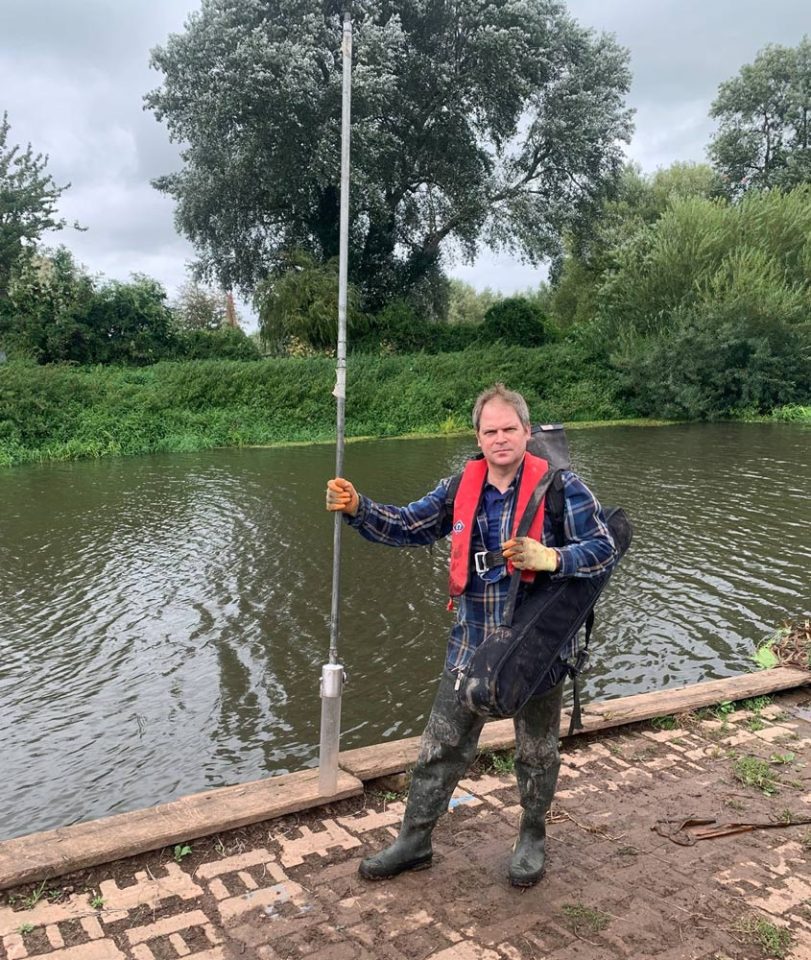Evaluating contamination in sediment, waters and fish from two contrasting catchments in England
Calum Ramage's PhD project sets out to assess the impacts of pesticides and trace metals on British rivers.
02/12/2021 By BGS Press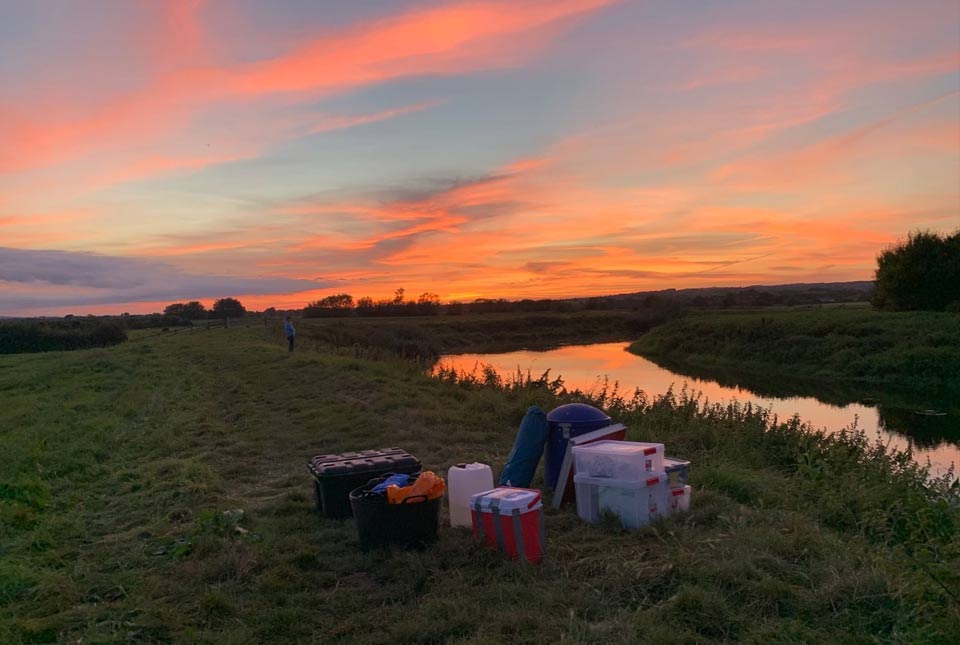
Environmental contaminants pose a serious problem to nearly all rivers in England and Wales. According to a 2019 report by the Environment Agency, only 14 per cent of rivers are of ‘good ecological status’ while, even more shockingly, zero per cent of rivers reached ‘good chemical status’.
As the natural drains that flow through our cities and countryside, rivers are at the receiving end of our household, industrial and agricultural waste. Many of the chemicals now ubiquitous in our aquatic environments, such as trace metals and agrochemicals, can bioaccumulate in aquatic wildlife and cause a wide variety of health issues such as neurotoxicity, endocrine disruption, genotoxicity and immunosuppression. All these issues can affect the survival of individuals and populations throughout the food, or trophic, web and therefore have the potential to threaten the delicate ecological balance within our rivers.
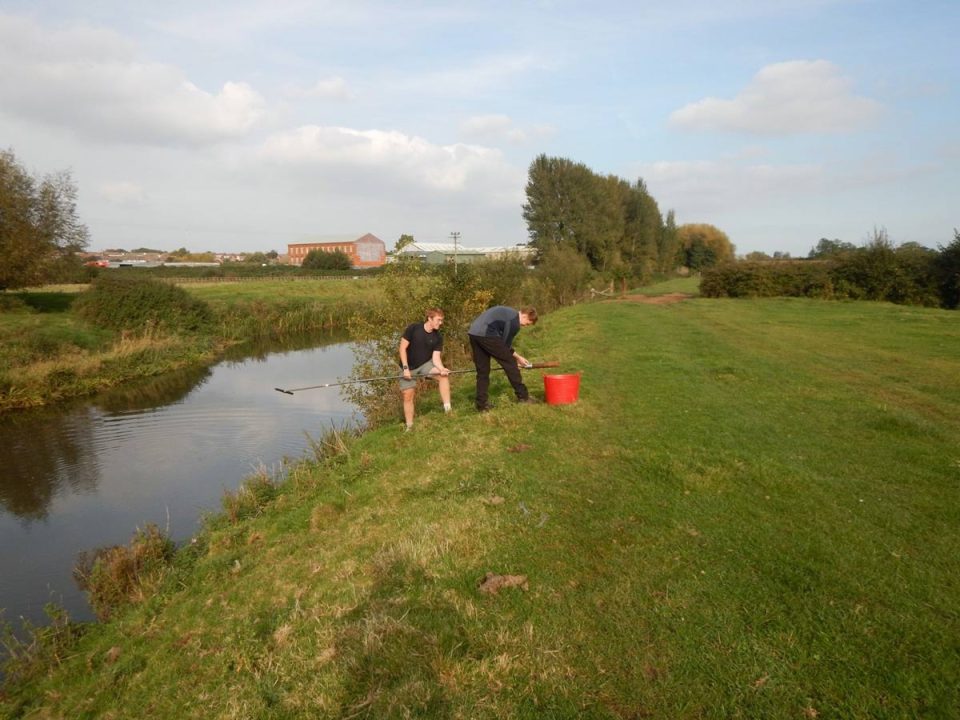
Sampling in the River Tone. © Calum Ramage.
Agriculture and river health
In the UK, our reliance on agrochemicals is of especially great concern to river health. More crops are being treated with pesticides than ever before and increasingly often. Treatments regularly contain harmful mixtures of pesticides that, when combined, can cause a ‘cocktail’ effect. Despite an increase in the number of chemicals being regularly monitored in river water, we are far from understanding the full ecological and ecotoxicological impacts of these contaminants on our freshwater ecosystems.
The project
A PhD project, led by Calum Ramage and his team of supervisors from the University of Nottingham (L Yon, M Johnson and L Bailey) and BGS (Christopher Vane and Raquel Lopes dos Santos), has set out to assess the impacts of pesticides and trace metals on British rivers and on the health of their aquatic inhabitants. At BGS, targeted pesticide screening methods will be used to detect and quantify a wide range of current-use pesticides in the waters, sediments and biota of two of our rivers: the River Tone in Somerset and the River Wensum in Norfolk. At the University of Nottingham, work will focus on trace metal analyses and effect-based monitoring methods, using wild fish as bioindicators of aquatic health.
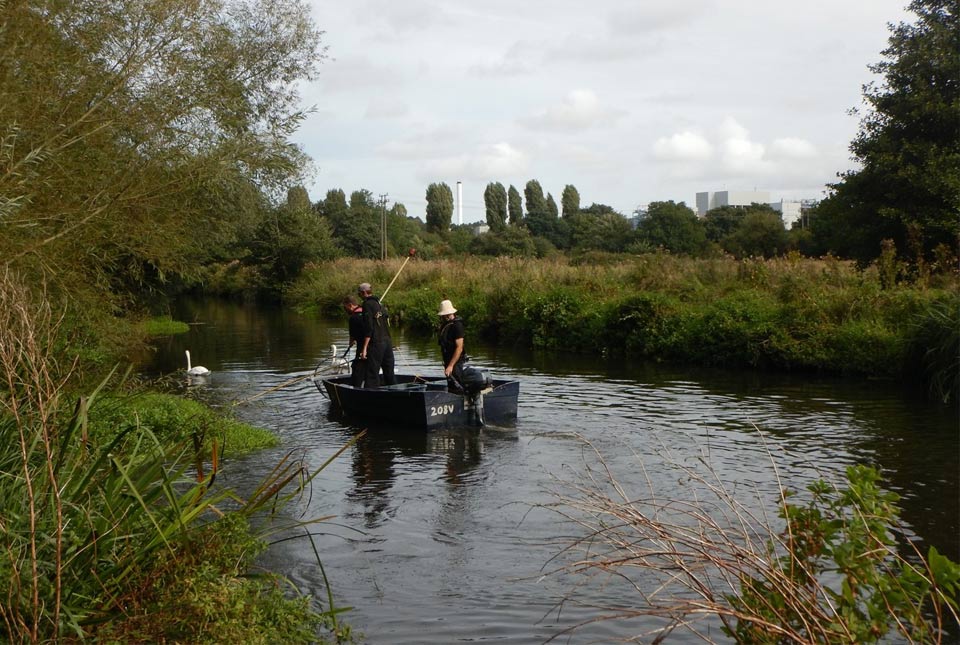
Fish are caught in the River Wensum by the Environment Agency, with swans in attendance. A large chemical plant, whose previous owners were responsible for dumping several tonnes of mercury in the river, forms a pertinent backdrop. © Calum Ramage.
After a challenging year and a half spent heavily adapting the PhD project, which was originally due to take place in Kruger National Park, South Africa, fieldwork in the UK finally commenced in autumn 2021. Various sediment sampling equipment was first tested on the Tone during a scoping visit to work out the most suitable sampling method. This was quickly followed by two very long and challenging days of fish sampling in early October, then two weekends of environmental sampling in which surface water and surface sediments were collected from across both river catchments. While sampling English rivers may not have matched the excitement of South African fieldwork, the additional peace of mind felt when wading into non crocodile-or hippo-infested waters did partially make up for it!
Future work
Now that the first batch of samples are in, the next few months will be spent processing, extracting and analysing the water, sediment and biotic samples by LC-MS/MS for the presence and distribution of pesticides in the two rivers, as well as for their bioaccumulation in invertebrates and fish. An in-depth fish health assessment, using a range of biochemical and histopathological assays, will also be completed to provide an impact assessment of pollutants in both rivers.
About the author
Calum Ramage
I was born and raised in rural France on the Swiss border and have always been drawn to nature and wildlife. My passion for the natural world led to me studying biological sciences at University College London and the University of Western Australia, before leaving to work on conservation and island restoration projects in South Africa and Mauritius. I was then drawn back to the UK by this multidisciplinary PhD project, which links environmental and wildlife health to anthropogenic activities.
Relative topics
Latest blogs
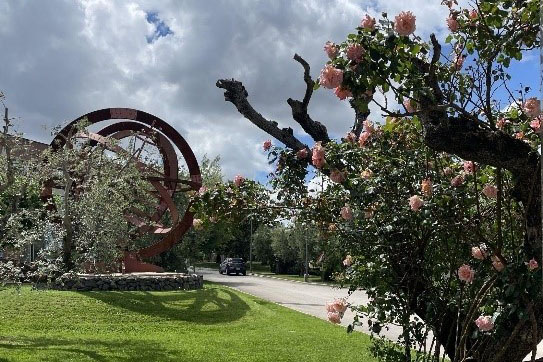
AI and Earth observation: BGS visits the European Space Agency
02/07/2025
The newest artificial intelligence for earth science: how ESA and NASA are using AI to understand our planet.
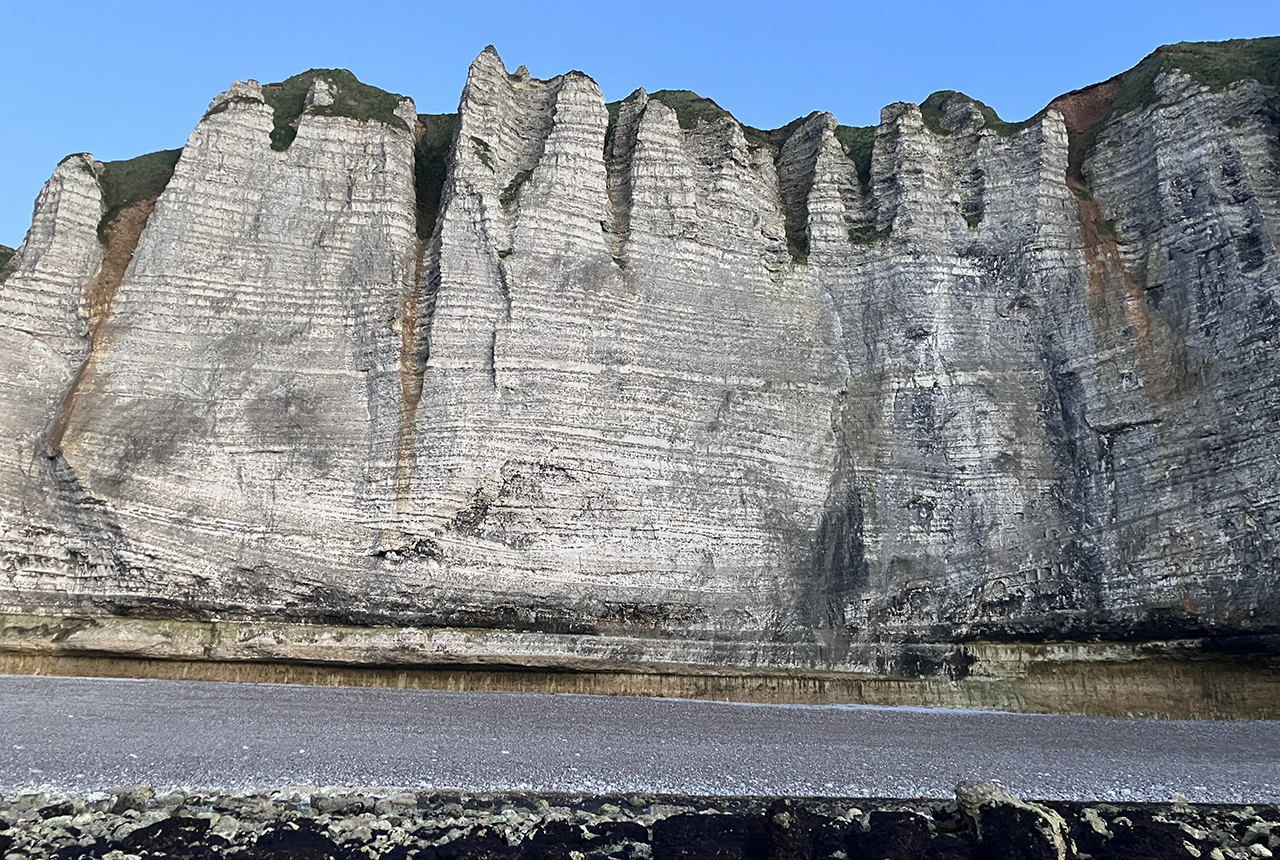
Geology sans frontières
24/04/2025
Geology doesn’t stop at international borders, so BGS is working with neighbouring geological surveys and research institutes to solve common problems with the geology they share.
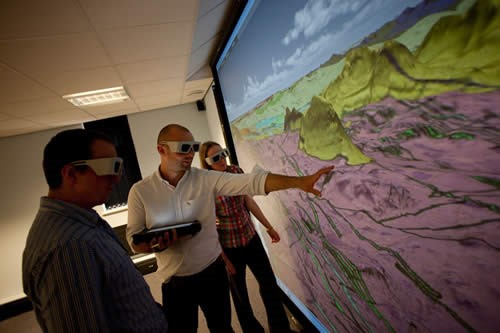
Celebrating 20 years of virtual reality innovation at BGS
08/04/2025
Twenty years after its installation, BGS Visualisation Systems lead Bruce Napier reflects on our cutting-edge virtual reality suite and looks forward to new possibilities.
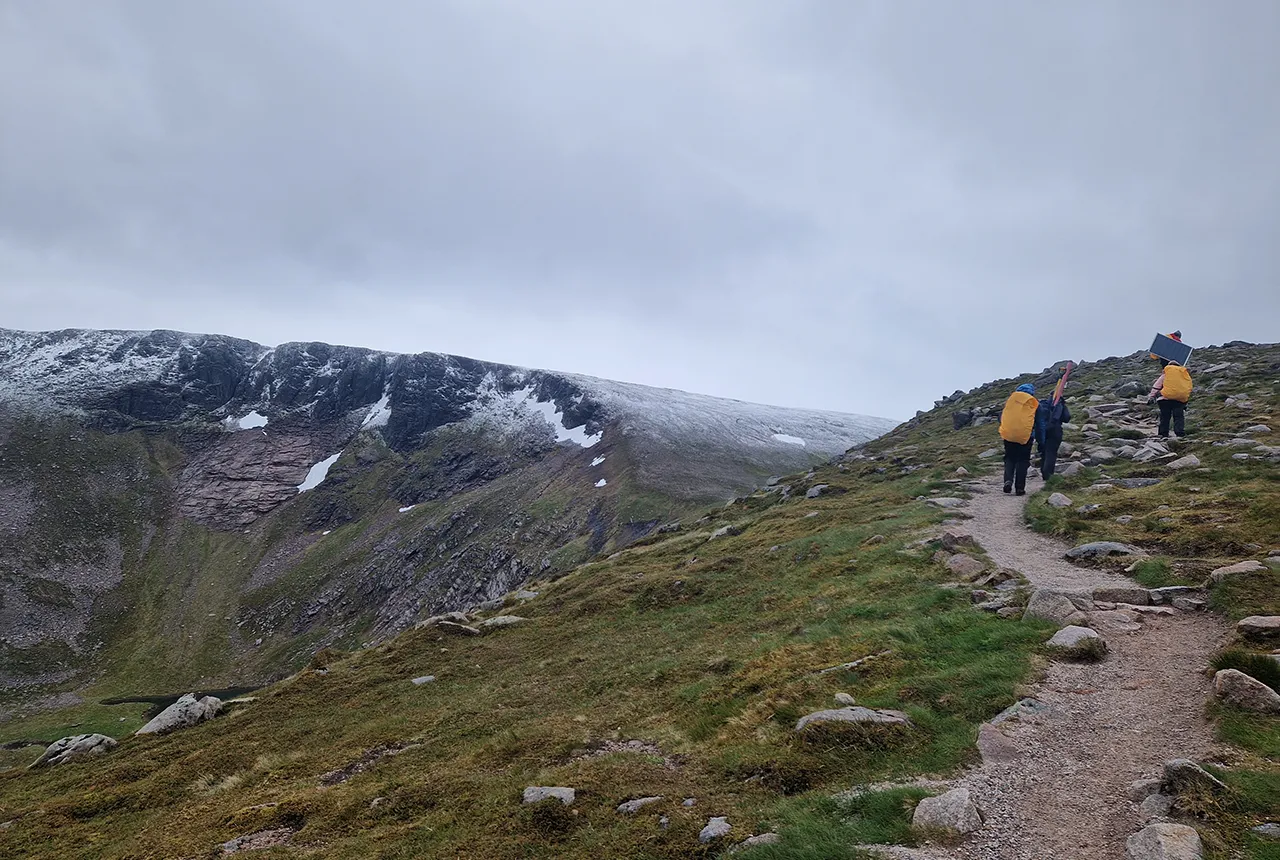
Exploring Scotland’s hidden energy potential with geology and geophysics: fieldwork in the Cairngorms
31/03/2025
BUFI student Innes Campbell discusses his research on Scotland’s radiothermal granites and how a fieldtrip with BGS helped further explore the subject.
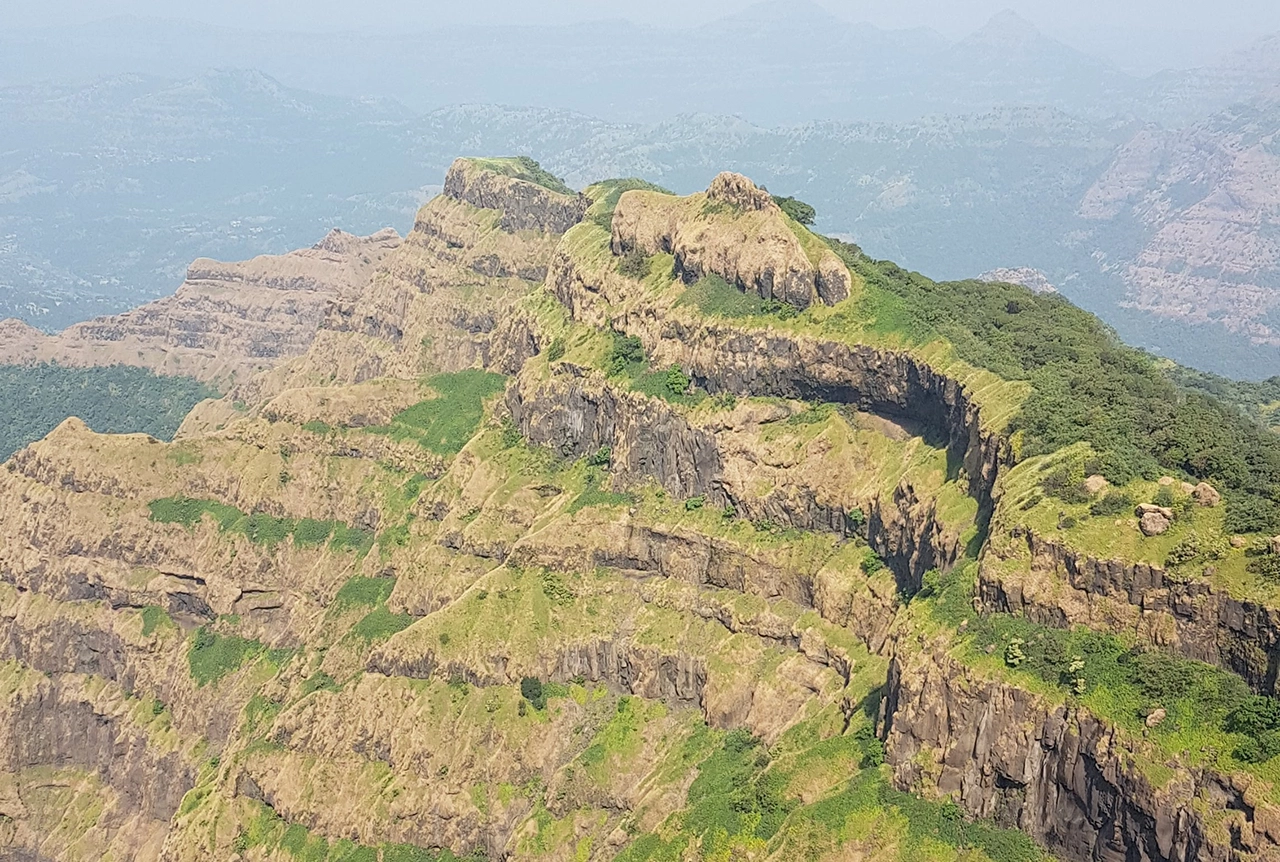
Could underground disposal of carbon dioxide help to reduce India’s emissions?
28/01/2025
BGS geologists have partnered with research institutes in India to explore the potential for carbon capture and storage, with an emphasis on storage.
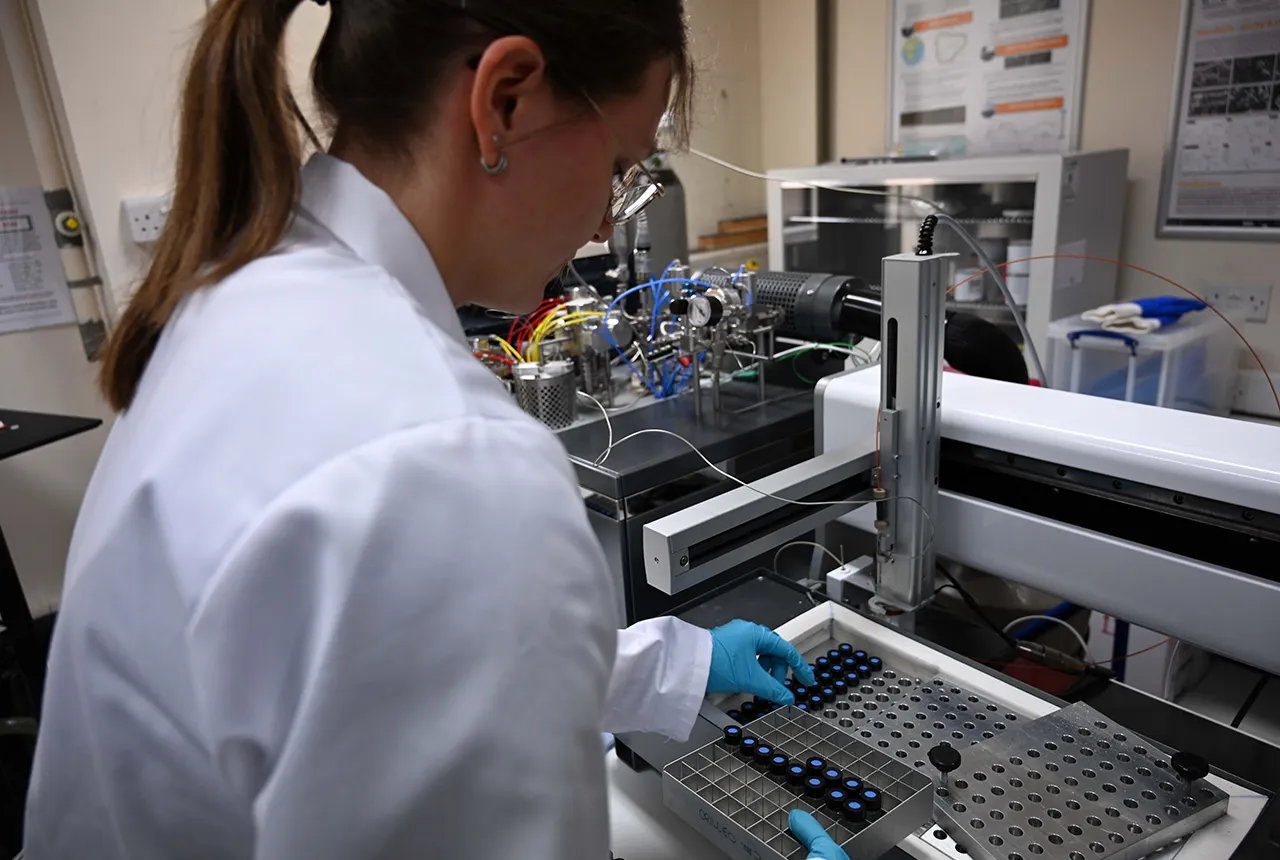
Carbon and oxygen isotope analysis of carbonates and the development of new reference materials
18/12/2024
Dr Charlotte Hipkiss and Kotryna Savickaite explore the importance of standard analysis when testing carbon and oxygen samples.
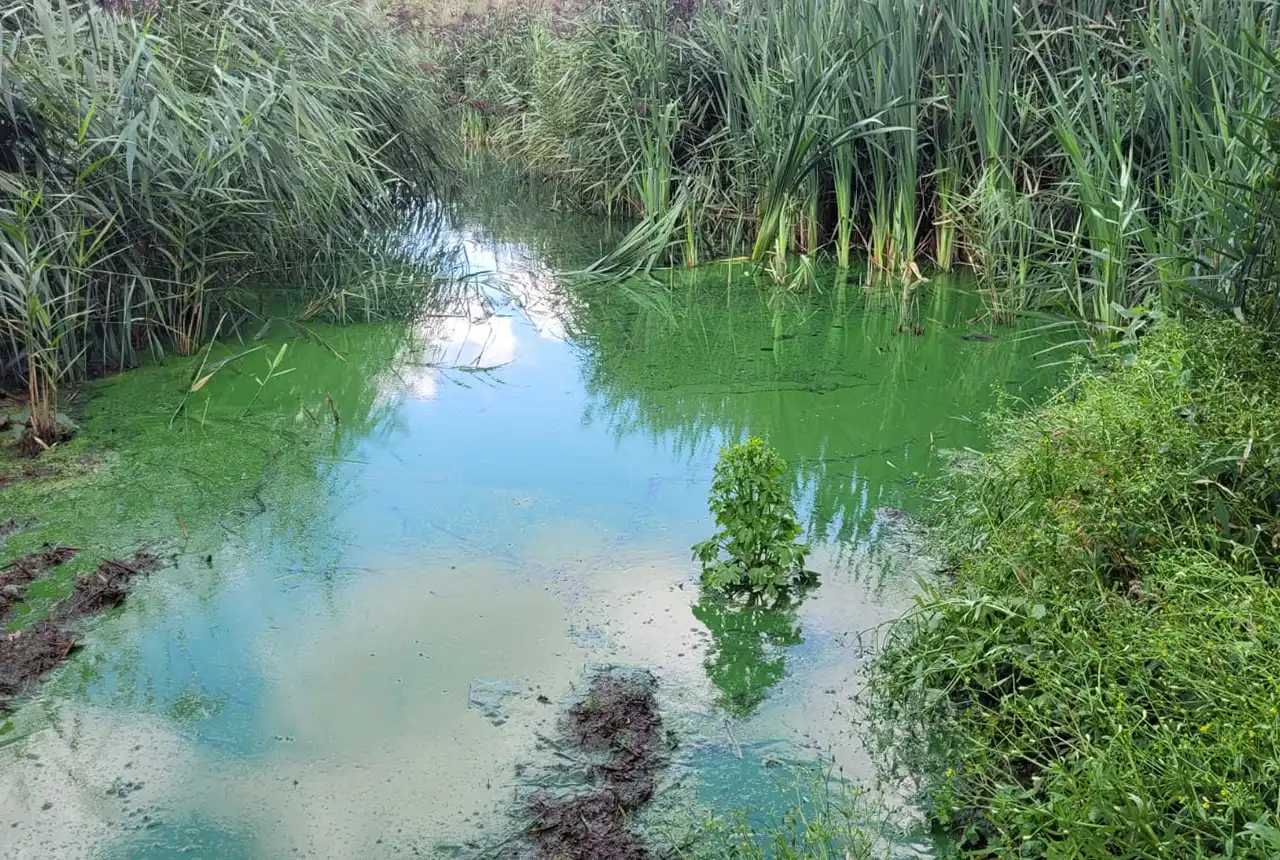
Studying oxygen isotopes in sediments from Rutland Water Nature Reserve
20/11/2024
Chris Bengt visited Rutland Water as part of a project to determine human impact and environmental change in lake sediments.
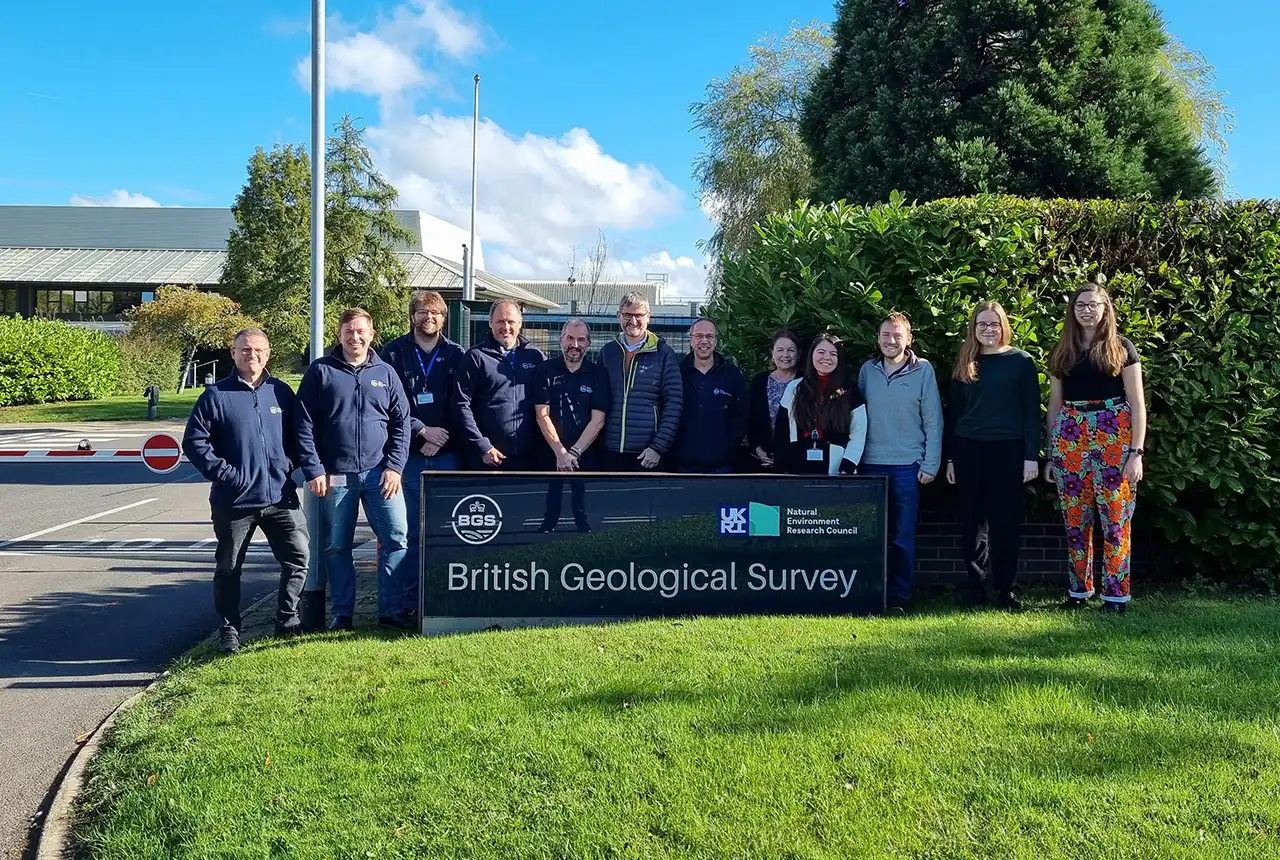
Celebrating 25 years of technical excellence at the BGS Inorganic Geochemistry Facility
08/11/2024
The ISO/IEC 17025 accreditation is evidence of technical excellence and reliability, and a mark of quality assurance.

Electromagnetic geophysics in Japan: a conference experience
23/10/2024
Juliane Huebert took in the fascinating sights of Beppu, Japan, while at a geophysics conference that uses electromagnetic fields to look deep into the Earth and beyond.
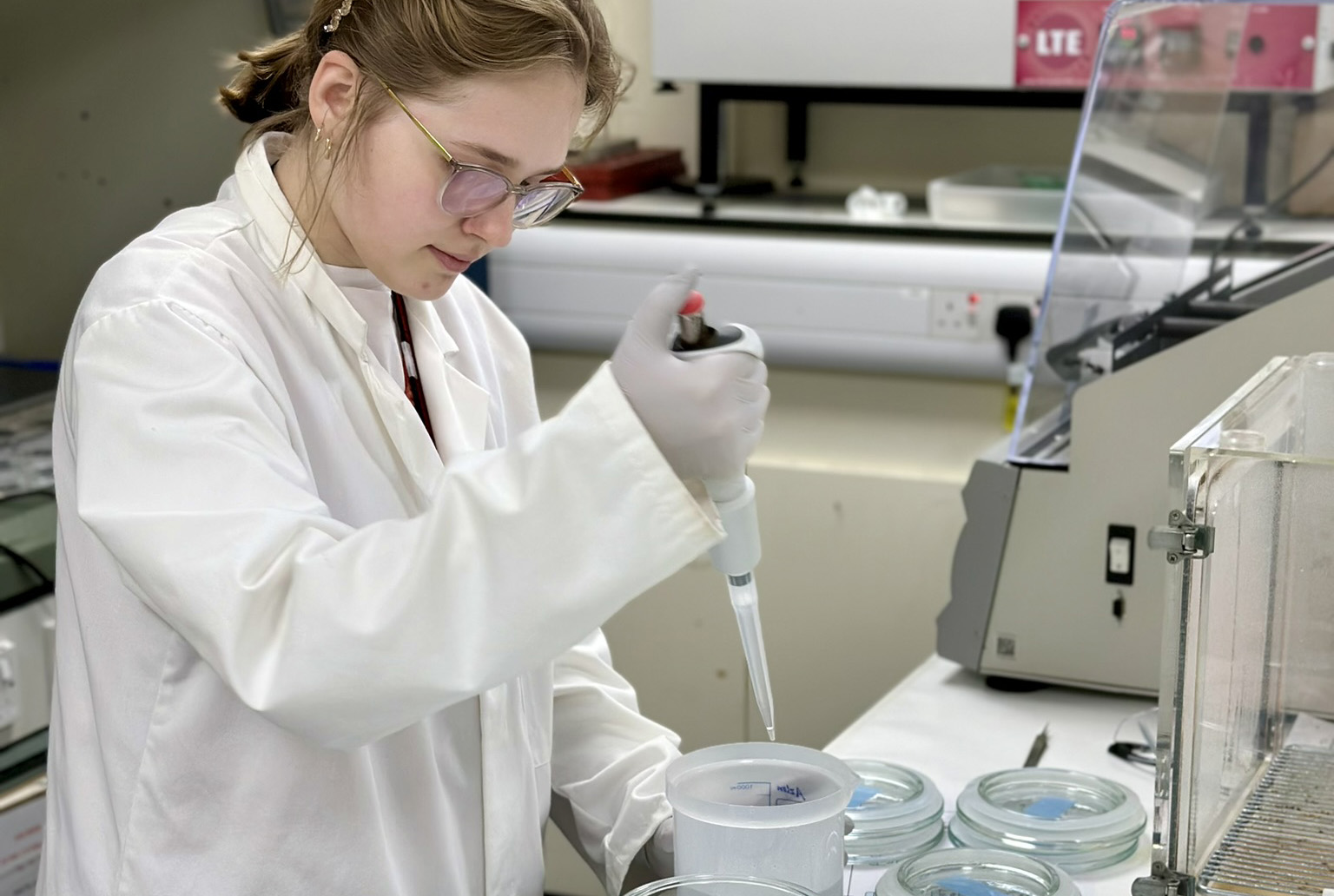
Exploring the role of stable isotope geochemistry in nuclear forensics
09/10/2024
Paulina Baranowska introduces her PhD research investigating the use of oxygen isotopes as a nuclear forensic signature.
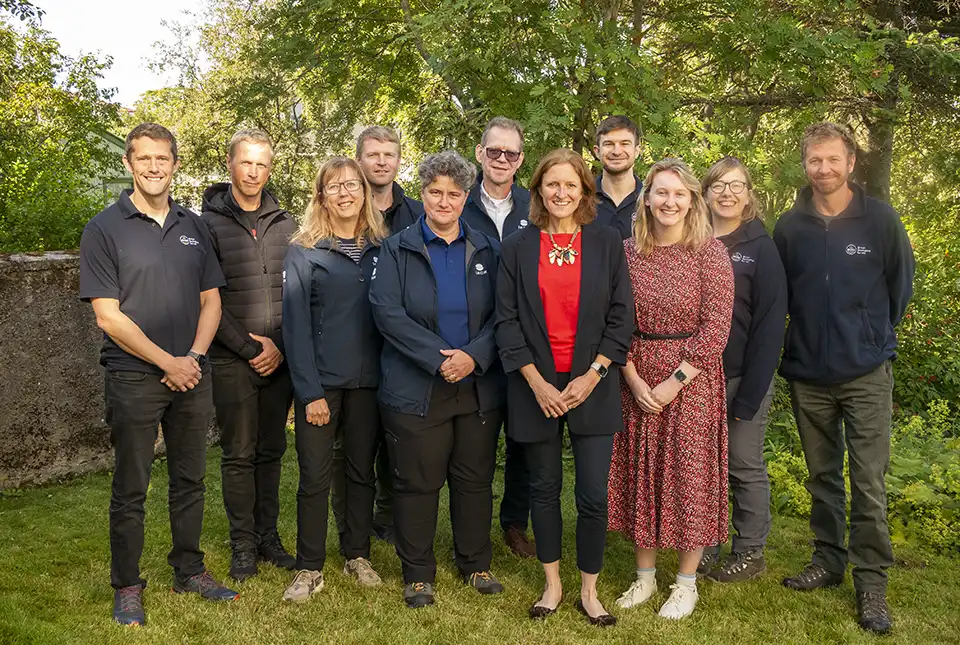
BGS collaborates with Icelandic colleagues to assess windfarm suitability
03/10/2024
Iceland’s offshore geology, geomorphology and climate present all the elements required for renewable energy resources.
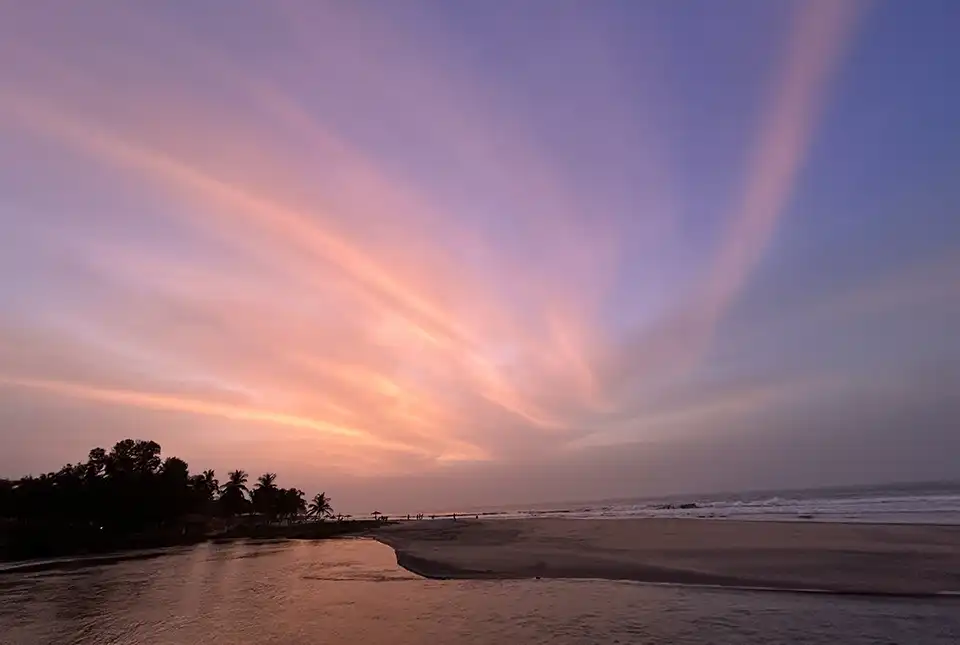
Mining sand sustainably in The Gambia
17/09/2024
BGS geologists Tom Bide and Clive Mitchell travelled to The Gambia as part of our ongoing work aiming to reduce the impact of sand mining.




